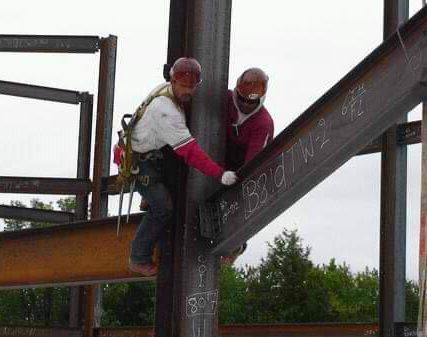New Yorker’s Experience Highlights A Growing Problem: COVID-19 Testing Reliability

November 30, 2020
When Emil Torres got the call to go back to the Local 40 International Association of Bridge, he was relieved. The 42-year-old New Yorker had been out of work since March 30 and was watching his savings dwindle. But, before returning, he had to provide his employer with a negative test result for COVID-19. He wore a mask and socially distanced himself, so he was shocked when he got a positive test result.
“I literally couldn’t believe it,” said Torres, “I thought I was as safe as I could be.”
Torres had no choice other than to self-isolate. During this time, he felt fine and hadn’t developed any symptoms. He knew there was a chance he could be asymptomatic, but to be certain, he went out and took a second test. It was negative.
“I was super relieved when it came back negative,” said Torres. “But just to make sure, I took a third test, which also came back negative.”
Torres’ experience highlights a growing problem: COVID testing reliability.
According to Curative, a company that mass produces COVID-19 tests, the tests available are 90% accurate. But, according to Dr. Maria-Fernanda Zapata, a general practitioner, It depends. Test results may vary on certain factors, like lab conditions or how well the test was executed.
There are two main types of tests, the PCR test, and the Antibody test. The PCR test actively searches for the specific infection or traces of the infection in a patient’s oral cavity to determine if the test is positive or not. The antibody test checks the patient’s blood to see if they have built up a defense for said infection. The PCR tests have a 98% accuracy for detecting Covid-19, while the antibody tests have a much lower accuracy percentage ranging from 80%-70%.
“Even though there’s a very slim chance for a patient to receive a false test result, it doesn’t mean it’s impossible,” said Dr. Maria-Fernanda Zapata.
According to Dr. Deiber Borego, another general practitioner, who has worked at several hospitals dealing with patients of Covid-19 in Colombia, there are some cases when the deadly virus is confused for the flu or other respiratory viruses and vise versa.
“We as doctors have to be very careful and analytical of our patients because we know so little of this virus that it’s easy to get it mixed up for something else,” said Dr. Deiber Borego.
Today Torres is back at work, where he undergoes weekly Covid-19 tests to make sure he stays negative.
“These weekly tests make me feel safe here at work,” said Torres, “Although it is unsettling knowing that there is still a chance someone could get a false test result.”



Diegocruz903 • Dec 9, 2020 at 8:19 pm
I like this this story I mean I would do what he did go and take a test 3 times just because the first one seem wrong they need to improve that in my opinion because this is serious
hartjake0696 • Dec 8, 2020 at 12:40 pm
I liked this because i got a covid test today and now i can really trust the results by them being 98% correct and the odds of them being wrong are slim to none. I would hate to have to get tested every week for work, I think the testing is pretty uncomfortable. It’s crazy how they can just swab your mouth and know if you have the virus or not.
hartjake0696 • Dec 8, 2020 at 12:35 pm
I can relate to this story because I got a covid test today and it was pretty weird and the person their even said it was 98% effective of real test and the odds of it being falsely accurate was slim to none I would hate to have take these tests every week. I think it’s crazy how they can tell if you hav it by just swabbing the back of your throat.